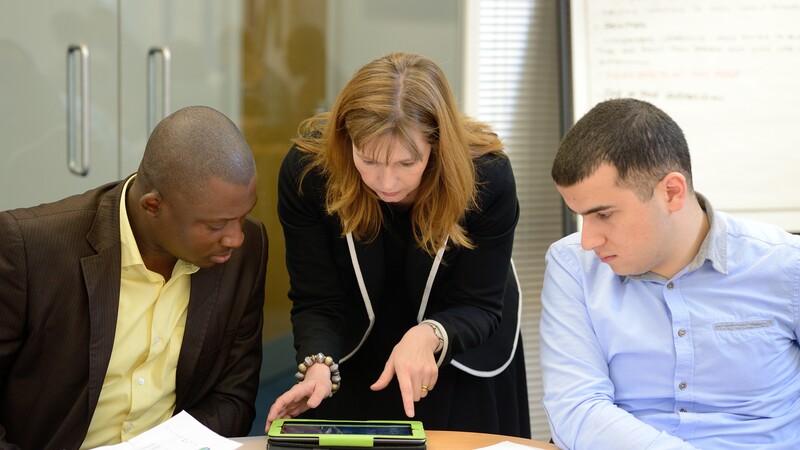The course will be led by Jacqui Manning with support facilitation provided by Dr Adrian Myers.
Jacqui is an independent Chartered Occupational Psychologist and an Associate Fellow of the British Psychological Society. She specialises in working in the workplace with neurodivergent clients and those with intersectional identities. She works across a range of private and public sector organizations. Jacqui is passionate about working with clients to uncover and make the best use of their strengths, talents and potential, whatever stage of life they may be at. Before retraining to become a psychologist, she worked in senior commercial roles in the education and third sectors with organizations such as Somerville College (Oxford University), London Business School and Shelter. Jacqui recently collaborated with Oxford Brookes’ Honorary Research Associate, Hany Shoukry, to co-author the first ever chapter on Diversity for the fourth edition of the Sage Handbook of Coaching.
Adrian is Programme Lead for the MA in Coaching and Mentoring at Oxford Brookes University. Adrian is a fellow of the British Psychological Society, a chartered occupational and coaching psychologist and an accredited coach supervisor with the European Coaching and Mentoring Council (ESIA, EMCC). Adrian has a breadth of research interests including neurodivergence. He himself had a late educational assessment of dyslexia with ADHD traits which has generated a personal interest in this area.
The notion of the self as an instrument of coaching, integral to the philosophy of coaching taught at Oxford Brookes will underpin the course. Jacqui will draw on her extensive knowledge of working with neurodivergent clients and will draw on her own case study material.

